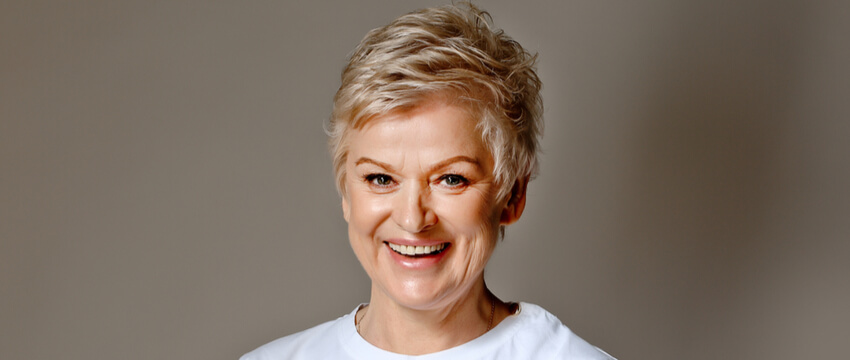Dentures, often colloquially referred to as ‘false teeth,’ play a pivotal role in maintaining oral health, especially for individuals grappling with missing teeth. The loss of natural teeth, whether due to tooth decay, gum disease, or injury, can significantly impact one’s quality of life – affecting not just the ability to chew and speak but also self-esteem. Whether full or partial, dentures offer a practical solution to replace missing teeth, restoring functionality and aesthetics. Today, with advancements in dental care, options like traditional dentures, hybrid partial dentures, and implant-supported dentures are available, catering to diverse needs and preferences.
In Australia, the conversation about dentures extends beyond just the need and benefits; it delves into the financial aspect – how much does a full set of dentures cost in Australia? This question is crucial for those considering this dental procedure. The cost of dentures in Australia varies widely, influenced by factors like the type of dentures (full or partial, upper and lower dentures), the materials used (ranging from cheaper to high-quality denture teeth), and whether additional treatments like tooth extraction are needed.
Our discussion will navigate the intricate landscape of denture costs, exploring elements such as the average full denture cost, the role of health insurance, and options available at private and public dental clinics. This article aims to provide a comprehensive overview of denture prices, the associated costs, and how these costs compare nationally, according to the National Dental Fee Survey. Whether you’re considering conventional upper and lower acrylic dentures, temporary dentures, or permanent solutions, understanding the financial implications is crucial in making an informed decision. Let’s delve into the nuances of denture costs in Australia, aiming to equip readers with essential information to make the best choice for their dental health and budget.
Understanding Dentures
Dentures, often called false teeth, are a customary dental solution for replacing missing teeth. These dental devices are designed to replace natural teeth lost due to tooth decay, gum disease, or injury. The primary purpose of dentures is not only to restore the appearance of a full set of teeth but also to support facial muscles, assist in speaking, and improve chewing ability.


The cost of dentures can vary widely in Australia, influenced by factors such as the type of dentures, the materials used, and the dental services required. The National Dental Fee Survey can provide a general guide, but the cost often depends on individual cases. The cost in Australia can range significantly for a full set of dentures, with health insurance sometimes covering part of the expense. Patients need an initial consultation with a prosthetist to understand the associated costs and explore options like cheaper materials versus quality materials.
Dentures have a rich history in dentistry, evolving from rudimentary replacements made from animal teeth and bones to the modern, more natural-looking versions made in dental laboratories. Today, advancements in dental care have introduced options like implant-supported dentures, which provide a more stable solution than traditional dentures. These blend dentures and dental implants, offering a more permanent solution.
In addition to conventional dentures, there are temporary dentures, used immediately after teeth extraction, and hybrid partial dentures, which combine the benefits of fixed bridges and conventional partial dentures. The choice between upper and lower dentures, or both, typically depends on the patient’s specific needs.
When considering dentures, discussing with a prosthetist the best options for your dental health, lifestyle, and budget is crucial. Denture clinics in Australia offer a range of solutions, from lower acrylic dentures to upper and lower complete sets, ensuring that every patient can find a suitable option to replace missing teeth and restore their smile.
Factors Influencing the Cost of Dentures in Australia
The cost of dentures in Australia is not a one-size-fits-all figure. Several key factors significantly determine how much denture wearers pay for their new set of teeth. Understanding these variables can help those considering dentures better anticipate the potential costs.
Material Costs
The choice of materials is a primary factor influencing denture prices. Common materials include acrylic, metal, porcelain, and a combination of different denture parts. Acrylic is often used for the denture base, while porcelain or composite materials may be used for the denture teeth. These materials’ durability, aesthetics, and comfort vary, impacting the overall cost. For instance, high-quality materials like porcelain, which mimic the appearance of natural teeth, tend to be more expensive.
Labour and Fabrication
Creating dentures is labour-intensive and requires a high degree of customisation. Each denture is tailored to fit the unique contours of the patient’s mouth, requiring significant labour hours from skilled dental technicians. The more complex the design, especially in cases of full dentures or implant-supported dentures, the higher the labour cost.
Dental Clinic Factors
The denture clinic’s location, reputation, and facilities also influence costs. Clinics in major cities or those with a high reputation for quality dental care may charge more. The level of service and additional amenities the clinic provides can also add to the cost.
Additional Treatments
Often, getting dentures requires more than just the fitting of false teeth. Some patients may need tooth extractions, treatment for gum disease, or other preparatory dental procedures. These additional treatments can significantly increase the overall cost.
Technological Advancements
Recent advancements in dental technology, such as CAD/CAM (computer-aided design and manufacturing) and 3D printing, have introduced new possibilities in denture fabrication. These technologies can offer a more precise fit and faster turnaround time but may come at a higher cost compared to traditional dentures.
In summary, the cost of dentures in Australia depends on various factors, including the materials used, the labour and expertise involved in their fabrication, the specifics of the dental clinic, any additional dental treatments required, and the incorporation of advanced technologies. Each aspect contributes to the total expense, making it essential for potential denture wearers to discuss these factors during their initial consultation with a prosthetist to understand the exact cost and options available.
Average Cost of Full Dentures in Australia
Understanding the cost of full dentures in Australia requires navigating a range of prices influenced by various factors. The average cost of full dentures can significantly vary based on the quality of materials used, the type of denture, and the location of the denture clinic.
Average Price Ranges
On average, the cost of a full set of dentures in Australia can range from a few thousand dollars to several thousand, depending on the specific requirements and choices. For example, basic full dentures made from standard materials like lower acrylic can be on the lower end of the price spectrum, while high-quality, implant-supported dentures or those made with advanced materials can cost significantly more.
Price Comparison by State or Major Cities
The cost of dentures also varies by location. In major cities like Sydney or Melbourne, where the cost of living and dental services tends to be higher, patients might pay more for the same dental procedure than those in smaller cities or rural areas. Additionally, public dental clinics might offer lower prices than private clinics, though this can affect waiting times for treatment.
Quality and Material-Based Price Variation


It’s crucial for those considering dentures to have an initial consultation with a prosthetist to understand the exact cost of their specific case. Factors like the need for tooth extraction, treating gum disease, or replacing multiple missing teeth can add to the overall expense. Additionally, private health insurance may cover part of the cost, affecting the out-of-pocket expenses for the patient. The National Dental Fee Survey can also provide insights into the average denture prices across Australia, helping patients budget for this important dental procedure.
Cost vs. Quality
The adage “you get what you pay for” often rings true when it comes to dentures. Balancing the cost and quality of dentures is critical for anyone looking to replace missing teeth or restore their smile. While the allure of lower-cost dentures can be tempting, particularly when considering the dentures’ cost in Australia, it’s crucial to understand the potential risks and long-term benefits of investing in quality dentures.
Risks Associated with Low-Cost Dentures
Opting for cheaper materials or less expensive denture options might save money upfront, but these savings can be short-lived. Low-cost dentures often use inferior materials that may not mimic the appearance and feel of natural teeth, leading to discomfort and a less natural look. Additionally, they may need to be more durable, resulting in more frequent repairs or replacements. This impacts oral health and can lead to higher costs in the long run.
Long-Term Benefits of Quality Dentures
Investing in high-quality dentures, such as those made from premium materials in a reputable dental laboratory, offers several long-term advantages. Quality dentures resemble natural teeth and provide better comfort, functionality, and aesthetics. They are also more durable, reducing the need for frequent repairs or replacements. Over time, the initial higher investment in quality dentures can prove more economical.
Consultation and Personalised Options
It’s essential to have an initial consultation at a trusted denture clinic to discuss different materials and types, including traditional dentures, implant-supported dentures, and hybrid partial dentures. Experienced dentists can guide you through the options, helping you understand the cost-benefit ratio of each type. This ensures you make an informed decision that balances cost and quality, tailored to your needs.
Insurance and Medicare Coverage
Navigating the costs of dental care, including dentures, in Australia can be complex, especially when considering the roles of insurance and Medicare. Understanding how these factors influence the out-of-pocket costs for patients is crucial.
In Australia, the cost of dentures varies, and this is where private health insurance plays a significant role. Many Australians have private health insurance that includes dental care coverage. The level of coverage for dentures depends on the specific policy. For instance, some policies may cover the cost of full dentures, partial dentures, or hybrid partial dentures. In contrast, others may offer limited coverage or require higher premiums for comprehensive dental services. Patients need to review their insurance plans to understand the extent of coverage for dentures, including traditional, temporary, and implant-supported dentures.
Medicare, Australia’s public health system, offers limited support for dental services. Generally, Medicare does not cover routine dental procedures like tooth extractions, dentures, or other dental prostheses. However, there are exceptions, such as the public dental clinics, which might provide some support for low-income or eligible individuals. These clinics can offer services like denture fitting and adjustments at a reduced cost or, in some cases, for free.
Patients often face a significant portion of the denture cost, even with insurance. The National Dental Fee Survey can provide a benchmark, but the exact cost often varies based on the dental procedure, the materials used for making the dentures (like quality denture teeth and lower acrylic denture materials), and the denture clinic. Full dentures cost can be notably higher than partial ones, and specialty dentures like upper and lower complete sets or permanent dentures may incur additional costs.
For those without private health insurance, paying the full cost of dentures in Australia can be challenging. Patients should seek initial consultations with dentists to discuss the associated costs, including the possibility of cheaper materials to save money without compromising the quality of dental care. Moreover, exploring options like dental payment plans or services at public dental clinics can also help manage the financial burden.
Maintenance and Additional Costs
Investing in a full set of dentures, whether conventional upper and lower or implant-supported options, goes beyond the initial denture prices. Long-term maintenance and potential additional costs are critical aspects of dental care that denture wearers should consider.
Long-Term Maintenance Costs
Dentures, like natural teeth, require regular maintenance to ensure longevity and function. Regular check-ups at a denture clinic are essential. Over time, dentures may need relining or rebasing, which involves adjusting the base to ensure a proper fit as the mouth’s shape changes. These maintenance procedures, while necessary, add to the overall cost of owning dentures.
Repair or Replacement Costs
Dentures are not immune to wear and tear. Accidental damage, such as cracks or breaks, might necessitate repairs, which can vary in cost depending on the extent of the damage and the materials needed. Additionally, the average lifespan of a denture is around 5 to 7 years, after which replacement might be required. The cost of new dentures can be significant, especially for high-quality materials or complex designs like hybrid partial dentures or lower acrylic dentures.
Extending the Life of Dentures


Understanding these ongoing costs is essential for anyone considering dentures. The initial consultation with a prosthetist or denture specialist can provide insights into these aspects, helping you to budget not only for the cost of dentures in Australia but also for their long-term care. Private health insurance may cover some of these costs, so checking your policy details is advisable. Investing in quality dentures and their upkeep is not just about aesthetics; it’s about maintaining your oral health and overall well-being.
Conclusion
In summary, understanding the cost of dentures in Australia involves considering various factors such as the materials used, the type of dentures, additional dental procedures required, and the specificities of the denture clinic. The average cost of full dentures varies, influenced by these factors and the geographical location. Those considering dentures must be aware of these cost determinants, whether it’s to replace missing teeth or as a cosmetic procedure. For personalised advice and detailed information on denture options and costs, we encourage you to consult with Custom Denture Clinic. Call us at (07) 5317 1023 and (07) 5315 8076 for an initial consultation, where you can discuss everything from traditional dentures to implant-supported options and get a clear understanding of the costs involved. Their expertise will guide you through the process, ensuring you make an informed decision for your dental health.
References:
webmd.com/oral-health/common-denture-problems
goodrx.com/health-topic/oral/cost-of-dentures
ncbi.nlm.nih.gov/pmc/articles/PMC8712110/
verywellhealth.com/tips-for-eating-with-new-dentures-2507129





Recent Comments